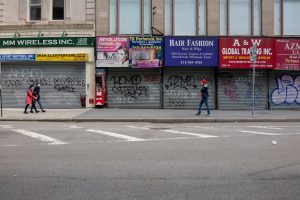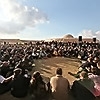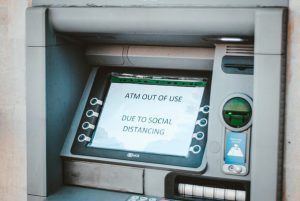 Michael Laitman, On Quora: “How will the coronavirus affect the world economy?“
Michael Laitman, On Quora: “How will the coronavirus affect the world economy?“
To start with, after this prolonged period of the conditions that the coronavirus has placed us into, our attitude to the world will become different and there will be major changes.
We will change psychologically, and accordingly, our systems, connections and perceptions will change such that there will be no return to the pre-coronavirus world.
The post-coronavirus world will be new. Our behaviors and connections will be different to what they were before the coronavirus.
I think that we will have a better feel of what is and isn’t essential in life, and that we will value a more internal definition of connection and closeness to each other. The extent of our psychological change will determine the extent of change in our systems, the economy included.

During the coronavirus period, while we are in prolonged social distancing and stay-at-home conditions, I think that the economy should operate in an emergency-like manner: that the government provides life’s essentials to every person—food, housing, water, electricity, and various municipal services per capita. I also think that our increased focus on life’s essentials will see the fall of a lot of businesses that we have no real need for.
The more that we endure this period, the more our awareness of what is most important in life will increase. In turn, this will calm us down from our egoistic-competitive rat race that we used to run.
In terms of how the world economy will actually look at the end of the coronavirus period, I don’t think we can depict the changes in the meantime, because time has to play its role. We have been in these conditions for a little over a month. Let’s say we will be in these conditions for another six months. We cannot yet imagine the changes we would have gone through at the end of such a period.
Ideally, we would operate in more balance with nature, i.e., with more mutual consideration and responsibility. It means acting like one big family that looks at the means it has at its disposal, and how it can best allocate what it has to every member in a mutually beneficial way.
Accordingly, situations we currently see, where for instance one family member cannot afford to pay rent and another receives millions to support a personal stash of mansions and yachts would no longer make sense to us, and we would thus find ways to iron out these situations for everyone’s common benefit.
Such logic is neither socialistic, capitalistic or communistic. It is based on an understanding of nature’s laws and what nature requires of us in order for us to balance with it.
However, in order to reach that kind of economy, we would need to undergo a major change in our attitudes to each other—a shift in our priorities from self-benefit to benefiting others.
Likewise, if we make no strides in this attitude shift, we can expect no such motions to make our economy more balanced with nature.
That is why I think it is still too early to say how the economy and world will look at the end of the coronavirus period. It is like we are in a train that left its previous stop, and we’re headed to the next stop, which we’ve never visited before.
Reaching such changes requires connection-enriching learning.
Connection-enriching learning aims to improve our understanding of the interdependent world we find ourselves in today, and how today’s interdependence requires mutual consideration, responsibility, support and encouragement among all of us in order for us to survive and live satisfying lives.
Moreover, the more unemployment increases due to many unessential businesses falling, on one hand, and also due to technological means replacing human resources, on the other hand, the more we will become ready for a different economic solution to the ones we have today.
I have written extensively about my support for universal basic income as such a solution, but only on condition that a basic income is given in exchange for participating in connection-enriching learning, so that social connections become more positive and people learn how to accept, understand, and get along with everyone, as well as engage in the creation of a new atmosphere of mutual consideration, support, awareness and sensitivity. If basic income is not supplied together with such learning, then society would stagnate.
Therefore, I think that the coronavirus’ conditions will bring us closer to such an economy, even if only by better preparing us psychologically for it.
The sooner we will reach mutually considerate attitudes to each other and an economy that reflects that attitude shift, the sooner we will see less violence, crime and abuse of all kinds in society, together with increased personal and social happiness.
Ultimately, it is a question of what we value.
In Hebrew, the word for “money” (“Kesef”) has the same linguistic root as the word for “covering” (“Kisui”). Therefore, if we change the covering over our society from a consumerist value of one’s self-worth that accords to the amount of wealth, status and power one has, to one where we value not individual wealth, status and power, but people’s contribution to a positively-connected society, then we would be on our way to a world that is more balanced with nature, and thus would experience more harmonious lives.
Filed under: Coronavirus, Crisis, Q&A, Quora - No Comments →
 From My Facebook Page Michael Laitman 4/26/20
From My Facebook Page Michael Laitman 4/26/20




 Michael Laitman, On Quora:
Michael Laitman, On Quora:









